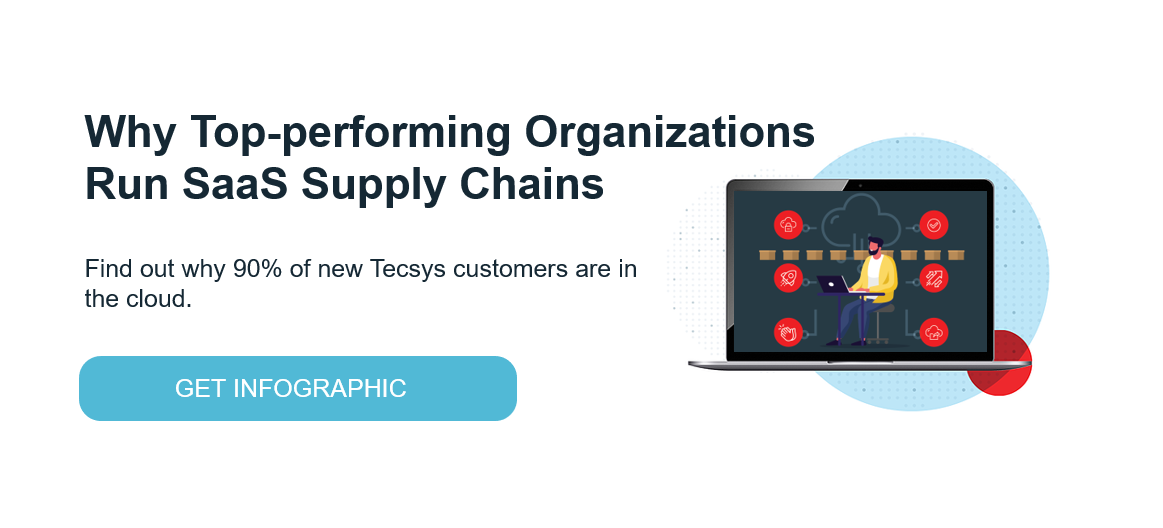Let a Cloud WMS Do Your Heavy Lifting

These days warehouse system managers are selecting the cloud as their deployment method, but why is that? Let’s look at what makes a cloud-based warehouse management system (WMS) such a compelling option for more businesses.
What Is a Cloud WMS?
There tends to be confusion between the cloud versus software as a service (SaaS). While these terms are often used interchangeably, they are different. A cloud WMS is simply referring to where the WMS software is running, which is usually installed on an internet-connected server that is supplied and managed by the WMS vendor and accessed remotely via a secure internet connection. SaaS refers to how the system is offered to the customer, as a service, rather than where it is located. SaaS systems most often are in the cloud, but some SaaS options allow for on-premise deployments.
While on-premise warehouse systems have been the application delivery standard for WMS for decades, times are changing. If you’re reviewing your WMS, the question you need to be asking yourself is not if you can remain competitive, but can you survive into the future with your WMS on-premise?
3 Reasons to Deploy a Cloud WMS
1. Rapid, Low Risk Implementation
Taking several months or even a year for a warehouse system implementation is now a thing of the past. A cloud WMS vendor has the tools – configuration, hosting and implementation – all taken care of to very quickly build a new system for each new customer. This means you can get your warehouse up and running quickly and efficiently. Since most cloud-based WMS solutions are billed monthly and include the implementation costs, it’s in the best interest of the vendor to be as efficient as possible. In effect, your vendor only gets paid if your warehouse implementation is a success. Much of this faster time-to-deployment is due to removing the intricate setup planning that’s required with an on-premise WMS.
2. Ongoing System Support Infrastructure
Most likely, your business is being pushed continuously to meet the logistical demands of your customers. To meet these challenging scenarios, you need to ensure your warehouse software is up and running smoothly around the clock. With a cloud WMS, you don’t have the burden of maintaining in-house IT support to troubleshoot any potential incidents. When you need break/fix support, a cloud WMS offers you not only technical experts, but also experts in warehouse management. This gives you a huge advantage in solving problems in comparison to having two competing experts (one technical and one application) battling the blame game.
3. World-class Security, Reliability and Compliance
Fears about cloud data security are proving to be an archaic point of view. A good cloud WMS vendor has invested in all the resources to make sure that your warehouse is always available. The system can be tailored to your security needs as well as any business and government regulations to ensure compliance. Traditionally, a service-level agreement will outline these factors. Rest assured, a cloud WMS can deliver the levels of availability, scalability and reliability you need.
Looking to Upgrade Your WMS?
Today WMS is no longer limited to on-premise implementations. As ransomware and cyber security continue to be a problem for businesses, having your most critical order production systems in the cloud might be a good idea. It’s a new year and it’s time to improve your WMS operations game. Take a serious look at a cloud-based WMS and you’ll quickly see how it will help you deliver a lot more value to your business partners and customers.




